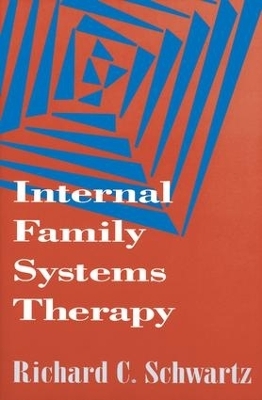
Internal Family Systems Therapy, First Edition
Guilford Publications (Verlag)
978-1-57230-272-3 (ISBN)
- Titel ist leider vergriffen;
keine Neuauflage - Artikel merken
In his important new book, Richard C. Schwartz applies systems concepts of family therapy to this intrapsychic realm. The result is a new understanding of the nature of people's subpersonalities and how they operate as an inner ecology, as well as a new method for helping people change their inner worlds. Called the Internal Family Systems (IFS) model, this approach is based on the premise that people's subpersonalities interact and change in many of the same ways that families or other human groups do. The model provides a usable map of this intrapsychic territory and explicates its parallels with family interactions.
The IFS model can be used to illuminate how and why parts of a person polarize with one another, creating paralyzing inner alliances that resemble the destructive coalitions found in dysfunctional families. It can also be utilized to tap core resources within people. Drawing from years of clinical experience, the author offers specific guidelines for helping clients release their potential and bring balance and harmony to their subpersonalities so they feel more integrated, confident, and alive. Schwartz also examines the common pitfalls that can increase intrapsychic fragmentation and describes in detail how to avoid them. Finally, the book extends IFS concepts and methods to our understanding of culture and families, producing a unique form of family and couples therapy that is clearly detailed and has straightforward instructions for treatment.
Offering a comprehensive approach to human problems that allows therapists to move fluidly between the intrapsychic and family levels, this book will appeal to both individual- and family-oriented therapists. Easily integrated with other orientations, the IFS model provides a nonpathologizing way of understanding problems or diagnoses, and a clearly delineated way to create an enjoyable, collaborative relationship with clients.
Richard C. Schwartz, PhD, is on the faculty of the Family Institute at Northwestern University. Coeditor of Handbook of Family Therapy Training and Supervision, he is coauthor of three books and author of over 40 articles on a variety of topics in psychotherapy. He serves on the editorial boards of five professional journals and is a fellow of the American Association of Marital and Family Therapists.
INTRODUCTION: JOURNEY TOWARD A NEW MODEL
1. The Basic Concepts: Multiplicity and Systems
2. Viewing Individuals as Systems
3. Changing the Internal System
4. Methods of Inner Work: In-Sight and Direct Access
5. Case Example
6. The Model's View of Families
7. Working with Families
8. Applying the Model at the Cultural and Societal Levels
9. Final Questions and Recommendations
Appendices:
A. Summary Outline for Working with Individuals.
B. Glossary of Concepts.
C. Bibliography of Models of Multiplicity
| Erscheint lt. Verlag | 9.9.1997 |
|---|---|
| Reihe/Serie | The Guilford Family Therapy |
| Verlagsort | New York |
| Sprache | englisch |
| Maße | 152 x 229 mm |
| Gewicht | 400 g |
| Themenwelt | Geisteswissenschaften ► Psychologie ► Sozialpsychologie |
| Medizin / Pharmazie ► Medizinische Fachgebiete ► Psychiatrie / Psychotherapie | |
| Sozialwissenschaften ► Soziologie ► Mikrosoziologie | |
| ISBN-10 | 1-57230-272-0 / 1572302720 |
| ISBN-13 | 978-1-57230-272-3 / 9781572302723 |
| Zustand | Neuware |
| Haben Sie eine Frage zum Produkt? |
aus dem Bereich


